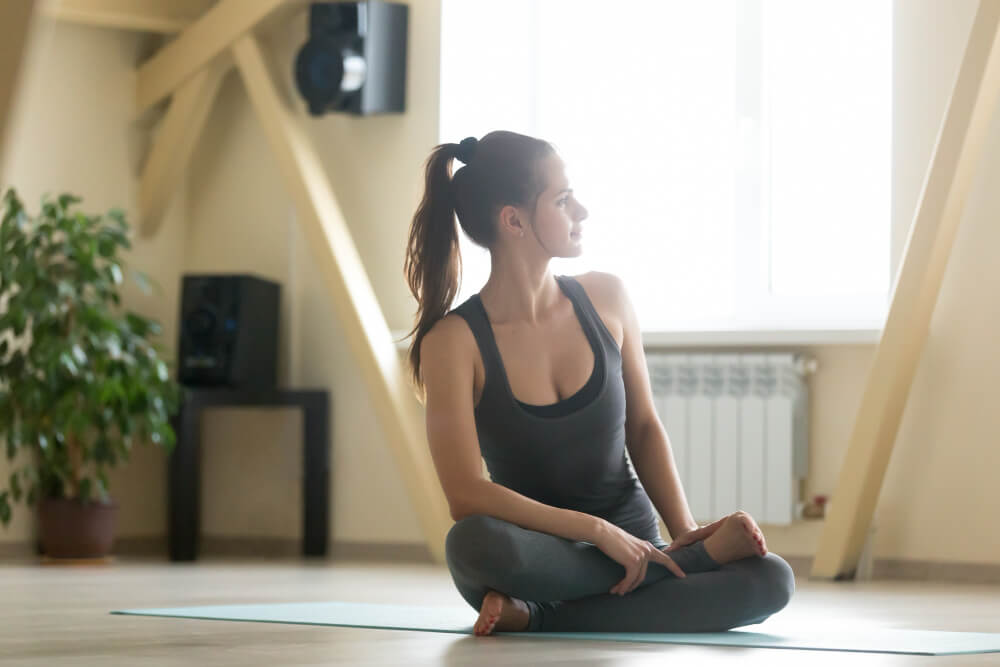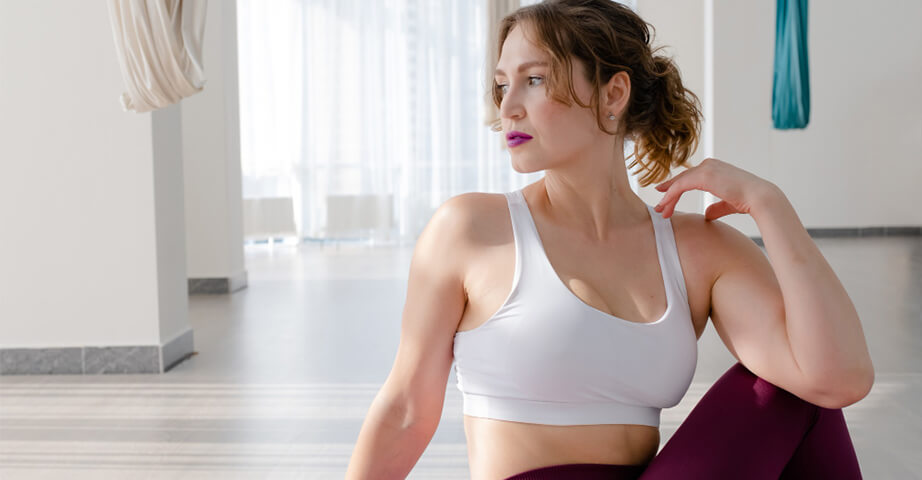Exercise for beginners - a guide for people with no training experience

Are you thinking about taking up exercise? Not sure what to begin with? The last regular sport you remember was PE classes in high school? If you're currently saying "yes", this guide is for you. We explain here the basics of exercises for beginners.
Exercise for beginners - what is the first step?
Many people start their adventure with exercise by shopping. Outfit, shoes, equipment, necessarily a smart band so the app on your phone knows everything about your heart rate, calories, and progress. Are you sure you need this? No.
Motivation to exercise
Exercise beginners should start with their motivation. A deep sense that it is worth it and that I want to do it. The reasons can vary, but it should not be ''to fit into a dress that is too small for my brother's wedding''. Motivation to train can be based on the need to look after your health, mobility, a view of being active, and appearance as much as possible, but not based on obsessive weight loss or muscle pumping. Therefore, to make a start, look inside yourself for motivation and think about the reason why you would like to exercise. Imagine yourself exercising. Imagine how it makes you feel, what it gives you. Picture this image in your mind, implement the emotion into yourself and remind yourself every time you want to give up.
Purpose of exercise
Think about a goal you want to exercise for, and what results you want to achieve. Better health and performance? Taking part in competitions? Losing weight? Building muscles? It will determine what type of exercise you choose and what effects you will notice. Keeping an eye on the results helps to keep you motivated. However, remember that it doesn't have to be a high-level goal, such as a bikini fitness competition next year. It is great if you have one. We're keeping our fingers crossed! But if your goal is to not gasp when climbing stairs - awesome and we are also keeping our fingers crossed!
Exercise as a habit
Turn exercise into a habit. You can read this slogan in practically every beginner's guide. Easy to say, harder to do. Although it is indeed 100% true. To make exercise relevant and enjoyable, it is best if it becomes a habit. This means that you should exercise a certain number of times a week, regularly, without activity spurts or two-week breaks.
To make it realistic, determine the number and length of workouts possible in the scheme of your life. Three times a week would be optimal. Plan specific exercise days and avoid postponing them to a different time. Be consistent. Choose a sport that you enjoy. You'll be forcing yourself to exercise at first anyway, so force yourself to do the thing that will ultimately give you pleasure, rather than feeling like it's all for nothing. When you don't feel like getting up from the sofa, bring back that pleasant feeling in your body after completing a previous workout. It really does help. After a few weeks, exercise will get into your blood and become a natural part of your day.
Recommended products
Checking your health
For most people, a doctor's visit and a health check will not be necessary before starting an activity, especially a light one for beginners. However, if you have cardiovascular problems, glucose problems, or any other chronic illnesses or haven't had blood tests for more than a year, see your doctor just for a short consultation.
Shoes for beginners' workouts
Coming back to shopping. There is one thing that is essential for beginners during exercise. Good athletic shoes. This is what we tend to lack in our wardrobes. While comfortable clothes for physical activity will be found, shoes - not necessarily. In fact, good shoes help prevent injuries and are responsible for your comfort during training, even if you are exercising at home.
Workouts for beginners - at home or at the gym?
There is a whole range of training options for beginners. You can start doing basically anything. Swim, run, ride a bike, or scooter, sign up for dance, yoga, boxing, tennis... Whatever comes to your mind. Having said that, thinking about workouts for beginners, there are usually two options that come to our minds. Training at home or at the gym. Both have their advantages and disadvantages.
Workouts for beginners at home are comfortable. If You have no experience, you don't know how much your body allows you to do, then just pick one of the hundreds of YouTube videos with workouts for beginners and see what suits you and makes you happy. You don't wonder if anyone is watching (for many people this is a problem, but in fact at the gym or group classes no one is watching, everyone takes care of themselves), you don't pack your bags, waste time getting there or pay for a membership.. A lot of advantages. At the same time, there are disadvantages, because having a deal only with yourself and not with the trainer or the group, makes it easier to give up. The second issue, which is a bit risky when training as a beginner at home, is that you don't know your technique and there is a big risk that you will perform some exercises incorrectly. It may lead to an injury.
Training at a gym or simply with an instructor has the advantage that someone will think for us when we are completely unfamiliar with something we don't know at all - they will prepare a training plan tailored to our goals and abilities.. He or she will take care of the correct exercise technique and, in addition, provide motivational support.
Both options have advantages and disadvantages. You need to think about which is better for you.
Training for beginners - important tips
When you take up training as a beginner, keep a few things in mind. These will help you stay in the workout mood, not give up quickly and take even better care of your body and mind.
- Start slowly. Don't push yourself on your first workout to the point where you can barely stand up on the second day. Slowly, gradually get your muscles used to the workout, bearing in mind that you are a beginner and have not exercised anything for years.
- Always do a warm-up before training and stretching after it.
- Remember to drink fluids. Hydrate yourself regularly.
- Eat healthy. Above all, make sure you eat vegetables, fibre and protein in your diet.
- Exercise with joy, with the feeling that you are doing something good for yourself. Don't treat training as a chore.
- Listen to your body. If it tells you "enough", ask yourself what is causing the indisposition. Don't force yourself.

Why should you exercise?
Are you still wondering whether exercise is for you? Take a look at the list of benefits of regular, moderate exercise. Nothing professional or specialised. Ordinary activity that anyone can do. Remember, any exercise is better than a lack of one.
What are the benefits of working out?
- Improved mood,
- more energy,
- better sleep,
- better stress management,
- reduced risk of anxiety and depression,
- improved sex life,
- improved cardiovascular function,
- improved respiratory function,
- increased bone density,
- reduced risk of overweight, obesity and metabolic diseases,
- reduced risk of some cancers.
